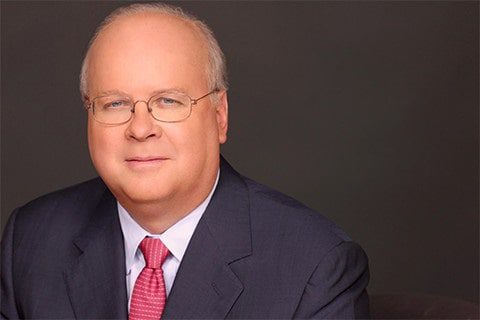
of U.S. Senators home page.
Opinion
By Karl Rove
The 2022 midterms ended Tuesday when Sen. Raphael Warnock defeated Herschel Walker in Georgia. Democrats should be pleased. They gained governorships and a Senate seat and kept their House losses to single digits, despite expectations of a red wave. But there’s a danger that Mr. Warnock’s runoff victory will strengthen President Biden’s misinterpretation of Democrats’ better-than-expected showing. That could be a recipe for disaster for his party come 2024.
The president seems to believe that the GOP’s awful midterm performance was the result of improved Democratic messaging about his administration’s record. When asked after the November election what Mr. Biden would “do differently to change people’s opinion of the direction of the country” as he prepares to run again, the president replied “nothing.” Americans are “just finding out what we’re doing,” he said. “The more they know about what we’re doing, the more support there is.”
Since then, Mr. Biden has signaled full speed ahead for his re-election campaign and demanded a makeover of the primary calendar to smooth his renomination and discourage any Democratic opposition.
But in reality, Democrats’ relative victory in the midterms came courtesy of Donald Trump, whose high-profile endorsements helped nominate freakish candidates, leading GOP-leaning voters to split their tickets. This was clear in Senate races, where candidates Mr. Trump carried to primary victories with his “full and complete endorsement” ran behind more-traditional Republicans in the fall.
In Ohio, 1 of 6 supporters of Gov. Mike DeWinecast their Senate ballots for Democrat Tim Ryan or left it blank. This is why Mr. Ryan’s Trumpian opponent, J.D. Vance, won by less than 7 points, while Mr. DeWine won by almost 26. In Arizona, almost 14% of supporters of the GOP’s victorious candidate for state treasurer left their ballot blank or voted for Democratic Sen. Mark Kelly, who defeated Trump-endorsed Blake Masters by 4.9 points.
Ticket-splitting also cost the GOP House seats as Republicans and GOP-leaning independents rejected Trump-endorsed candidates. More than 1 in 5 voters for New Hampshire Gov. Chris Sununu refused to support Trump-backed Republicans in the state’s two congressional districts. Mr. Sununu won by more than 15 points, while the GOP House candidates lost by 8 and 12.
In North Carolina’s First District, Mr. Trump endorsed Sandy Smith. She lost, in large part because she was accused by two previous husbands of domestic abuse. In a major county in the district, 1 of every 8 voters split their ticket, voting Democrat for House and Republican for Senate. Same in the 13th District, which rejected a young Trumpster for the House but went Republican for Senate.
In Ohio, Republicans lost two pickup opportunities when about 21% to 38% of Mr. DeWine’s voters in counties in the Ninth District voted Democrat for Congress. In the 13th District, 19.1% of DeWine supporters in one major county split their ticket, and 18.5% did in another. Both GOP candidates had little but Mr. Trump’s enthusiastic endorsement to recommend them. Republican-leaning voters found that insufficient.
Between 7% and 13% of GOP gubernatorial nominee Tudor Dixon’s supporters in Michigan’s Third District counties turned thumbs down on John Gibbs, Mr. Trump’s handpicked candidate. Trump favorites in Alaska and in Washington state’s Third District who stressed their ties to the former president also lost, running behind their statewide tickets.
Op-Ed by Mr. Rove, courtesy of rove.com, was first published in The Wall Street Journal.

Karl Rove served as Senior Advisor to President George W. Bush from 2000–2007 and Deputy Chief of Staff from 2004–2007. At the White House he oversaw the Offices of Strategic Initiatives, Political Affairs, Public Liaison, and Intergovernmental Affairs and was Deputy Chief of Staff for Policy, coordinating the White House policy-making process.
Mr. Rove has been described by respected author and columnist Michael Barone in U.S. News & World Report as “…unique…no Presidential appointee has ever had such a strong influence on politics and policy, and none is likely to do so again anytime soon.” Washington Post columnist David Broder has called Mr. Rove a master political strategist whose “game has always been long term…and he plays it with an intensity and attention to detail that few can match.” Fred Barnes, executive editor of The Weekly Standard, has called Mr. Rove “the greatest political mind of his generation and probably of any generation. He knows history, understands the moods of the public, and is a visionary on matters of public policy.”
Before Mr. Rove became known as “The Architect” of President Bush’s 2000 and 2004 campaigns, he was president of Karl Rove + Company, an Austin-based public affairs firm that worked for Republican candidates, non-partisan causes, and non-profit groups. His clients included over 75 Republican U.S. Senate, Congressional, and gubernatorial candidates in 24 states, as well as the Moderate Party of Sweden.
